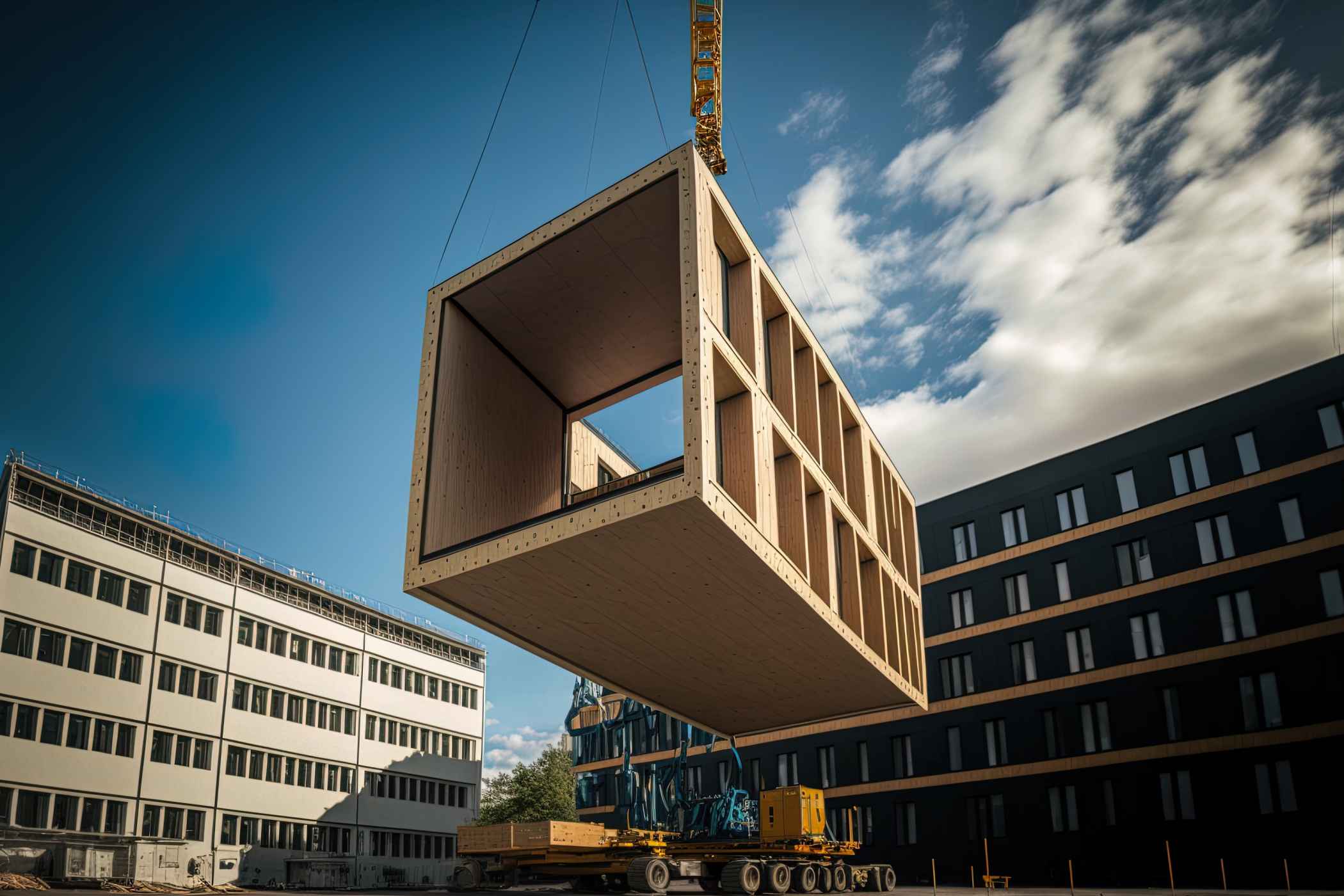Joining the Dots Can’t be this Difficult…We already know how to build back better
You might think Rishi Sunak already has enough on his plate (you’d probably be right), but in amongst the blizzard of headlines on Rwanda, tax cuts (or lack of them), disastrous byelections (for Rishi), and a looming general election, one piece of news managed to slip under the radar…which is surprising, because it couldn’t be more significant. It seems His Majesty’s Government doesn’t have a coherent policy, still less a strategic vision when it comes to investing in major and much-needed UK construction programmes: at least that’s what the Built Environment Committee of the House of Lords found in its January Report (www committees.parliament.uk), and they should know: even with their predilection for dressing up in racoon fur and red velvet, most of these guys have a track record of spending serious cash sensibly, and using it to make important things happen…which, as it now seems, is more than can be said for His Majesty’s Government.
But let’s start off by giving some context to the Committee’s findings, which might also help underscore why they’re so significant (see above).
The Dynamics of Positive Change
Right now, as you’re reading this, two powerful forces are coming together to realign global construction markets, shifting the tectonic plates, and reshaping how we’re all likely to live in the future, but they’re not, as is so often the case with market dynamics, working in opposition to each other. With the right policies and strategies, they can be brought together to build those markets back better.
First, we have an unprecedented global shortage in affordable housing: 1.8 Billion of our fellow citizens across the planet are either homeless or in severe need of somewhere to rest their heads (www gitnux.org), at least somewhere more secure than a cold pavement, or an all too temporary sofa. We’ve never seen anything like that before: thirty years ago, the global homeless figure was 1 Billion ( just shy of half the current number). That’s undoubtedly a major social issue, but it can also be a powerful driver for change. It just depends on how you look at it…
And then there’s the second dynamic: Modern Methods of Construction (or “MMC” as the racoon lovers on the Lord’s Committee like to say). As with almost every other commercial and social sector today, emerging technologies are radically changing the way we build things, and Modular Construction is at the cutting edge of that revolution. Because its prefabricated elements are created off-site (in climate-controlled conditions), and then rapidly assembled on-site to plan, a Modular building can be delivered 30% faster than a conventional bricks and mortar structure, up to 40% less expensively, and with nothing like the environmental damage we’ve grown sadly used to with all that rusted steel, crushed concrete, and broken blockwork.
And that, in a nutshell, is why Modular Construction Markets are now projected to grow globally to $144.8 Billion within the next six years (www.researchandmarkets.com/report/modular-building): 4.7% annually, and rising to half as much as the global rail sector is currently worth because Modular technologies can deliver homes and badly needed infrastructure (think hospitals and schools) far faster, and far more efficiently than any tired old dinosaur builder could dream of.
So, we have the technology and the need, and those are the two critical drivers for sustainable change (ask any economics 101 students): why not put them together and make change happen? That’s exactly what Prime Minister Modi’s Government has been doing in India, and in the United States Modular markets grew to $27 Billion in 2022, so it’s clear what their direction of travel is likely to be.
Not so much, though, back in Brexit Britain…
When is a Plan Not a Plan?
Their Lordships’ Committee established a serious disconnect between the Government’s ambitious (and too often missed) affordable housing targets, as well as highlighting its inability to marshal MMC technologies to deliver new homes where they’re needed most: policy objectives were “undirected and non-strategic” leading to a wholesale waste of public funds; Homes England and the Department for Levelling Up had a “Five-S” Plan, but couldn’t provide any details to the Committee (because the plan was “spread across multiple documents”); and, inevitably, the Committee’s Chairman, Lord Moylan (former investment banker, died in the wool conservative, and special adviser to Boris Johnson on transport infrastructure no less), wasn’t exactly mincing his words:
“Our inquiry found that the government has not set out clear objectives for the funding it provided the MMC sector. Homes England has not given any clear metrics as to how success is to be measured and over what timescale.
“The government needs to change tack. Simply throwing money at the sector hasn’t worked. If it wants to encourage MMC it must acquire a much deeper understanding of how it works, develop a clear strategy, and demonstrate leadership.”
I’m hoping Rishi might take some time out from his blizzard of headlines, leave aside election planning for a moment, and read this Newswire…It might equip him a little better to meet Lord Moylan’s challenge.
Modulex (www.modulex.in)
Modulex is a ConstrucTech Company working at the vanguard of emerging global construction: making use of 3D volumetric steel modular techniques: harnessing the power of emerging technologies, including AI, Blockchain and IoT, to meet burgeoning housing and infrastructure needs in developing and emerging markets. Delivering at pace and with optimal cost efficiencies.
Executive Overview
Matching demand with supply is part of the ABC of any successful business, but it should be part of Government’s ABC too…especially when it comes to building new and much needed homes.




.jpg?width=150&height=150&name=close-up-hand-holding-coin%20(1).jpg)

.jpg)


Leave a Reply